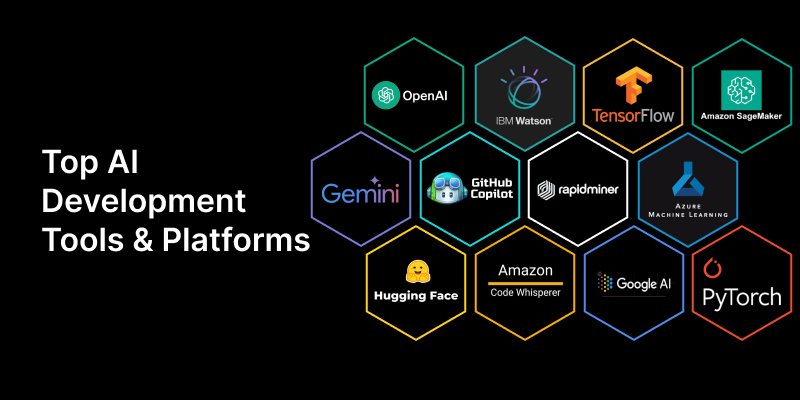How Generative AI Is Reshaping Software Development in 2025
 Bridge Group Solutions
Bridge Group Solutions
By 2025, generative AI has evolved from a sci-fi idea to a fundamental aspect of software development. Generative AI is simplifying processes, increasing productivity, and altering how developers approach issues from writing boilerplate code to testing and debugging.
Knowing how AI tools like ChatGPT, GitHub Copilot, and other LLM-powered assistants are changing development is essential for any developer, whether they are a junior developer, startup founder, or CTO, in order to remain competitive.
This blog examines the advantages of generative AI, the difficulties developers face, and how it is transforming software development in 2025.
Generative AI in Software Development: What Is It?
The term "generative AI" describes machine learning models that, given context or user input, can produce new content, such as code, documentation, or even entire application features.
Large code datasets are used to train these tools, which enables them to pick up best practices, styles, and patterns.
In 2025, developers will likely use the following popular generative AI platforms:
GitHub Copilot (OpenAI Codex-Powered)
Cursor AI (AI-native code editor)
These tools do more than just autocomplete; they comprehend context, offer wise recommendations, and assist developers in real-time problem solving.
How the Development Lifecycle is Being Transformed by Generative AI
Quicker Generation of Code
Based on simple English prompts, developers can quickly create functions, scripts, or even entire modules using generative AI. This speeds up development, particularly for standard or repetitive code.
Example: The prompt is, "Create a Python function to use regex to validate email addresses." As a result, a fully working script was available in a matter of seconds.
SEO Tip: This type of functionality is being actively used by developers who search for "fast Python regex with AI" or "generate email validation function"; dev workflows now include keyword-optimized prompts.
Streamlined Code Reviews and Debugging
The most time-consuming aspect of development is frequently debugging. By 2025, generative AI will be able to rewrite problematic code fragments, analyze error logs, and recommend fixes.
Advantages of AI Debugging:
finds bugs by looking at stack traces
offers practical, optimized substitutes
learns from past code to prevent recurring problems
Hack: Reduce review cycles and speed up code quality
Automated Comments and Documentation
It's no longer necessary for developers to write documentation, which they detest. By examining the logic of your code, generative AI can produce user-facing documentation, docstrings, and in-line comments automatically.
Why it matters: Well-documented, readable code facilitates better teamwork, particularly in distributed or remote teams, which is expected to become more popular in 2025.

AI-Powered QA and Testing
Unit tests, integration tests, and even user interaction simulations can be produced by generative AI tools. They also assist in finding edge cases that you might not think of by hand.
Improved Education for Novice Developers
Generative AI serves as a mentor to junior developers, helping them understand new coding concepts, frameworks, and languages. Learning is accelerated and confidence is increased with this real-time tutoring experience.
Software development is becoming more accessible thanks to generative AI.
Reducing the barrier to entry into coding is one of the most potent effects of generative AI in 2025. Without the need for entire development teams, entrepreneurs, designers, and non-tech founders are utilizing AI tools to create MVPs, websites, and even backend logic.
This process of democratization results in:
Quicker prototyping
More inventiveness
Shorter time to market
Case Study: Using ChatGPT, Bubble, and GitHub Copilot, a lone founder with no prior coding knowledge created a functional SaaS platform in six weeks.
Conclusion
How Will AI Affect Software Development in the Future
In 2025 and later, we can anticipate:
Deeper IDE Integration: AI tools will be integrated into editors such as cloud IDEs, JetBrains, and Visual Studio Code as native components.
More Accurate Context Awareness: Models will comprehend prior commits and the project-wide architecture more thoroughly.
Interfaces for Natural Languages: AI will create complete applications while non-programmers will specify what they want.
Cooperation Between AI and Human Teams: AI agents and developers will collaborate as if they were actual project partners.
Subscribe to my newsletter
Read articles from Bridge Group Solutions directly inside your inbox. Subscribe to the newsletter, and don't miss out.
Written by
